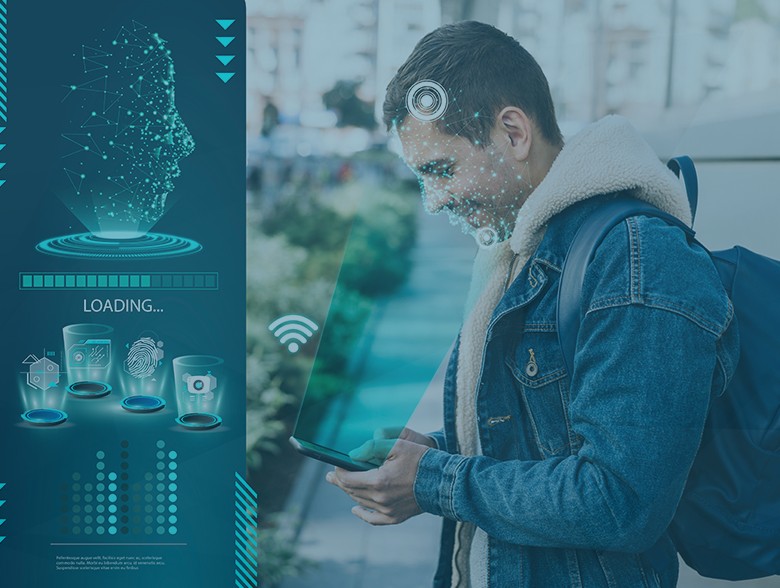By Rob Scott, Chief Innovator – Monjur
The modern digital era, ripe with unparalleled technological evolutions, is remolding our perceptions and expectations at a pace once thought inconceivable. Among all the sectors witnessing this metamorphosis, the legal sector, long viewed as the stronghold of traditionalism, is both an architect and subject of these groundbreaking shifts.
Historical Technological Transformations in Legal Services
The journey of technology integration in the legal sector is an interesting tapestry of innovations. From the days of typewriters and fax machines to the emergence of the internet, electronic databases, and now AI and machine learning, each phase has progressively facilitated better service delivery. While earlier adaptations improved the speed and accuracy of legal tasks, AI stands to be the game changer, bringing intelligent automation, predictive analysis, and unprecedented efficiency to legal processes.
Digital Transformation and Legal Services Today
Gone are the days of purely paper-based processes and face-to-face consultations. Cloud computing, artificial intelligence, and machine learning now underpin legal research, document analysis, and grant remote access to vital case files, ensuring efficiency and matching the evolving client expectations for transparency, security, and promptness.
One powerful way in which artificial intelligence models have been used in the legal industry is to power e-discovery platforms. It’s worth noting that some of the most recognized and frequently used e-discovery platforms — like Relativity and LexisNexis — have long used AI to power some of their functions. However, SaaS options have arisen that use artificial intelligence for purposes like document reviews and legal research.
Like professionals in many industries, lawyers can also train widely available AI platforms to better fit their needs. For example, lawyers can use large language models to analyze an agreement against a template in a faster amount of time, allowing them to handle more volume. Although it is still important for a trained legal expert to be involved — both to formulate the criteria upon which the AI will analyze a document, and to advise their clients on the anomaly the AI detects.
Embracing Responsible AI in Legal
However, the integration of AI in legal processes brings forth considerations beyond mere efficiency. Responsible AI — an emerging paradigm — insists on AI being transparent, accountable, ethical, and user-centric. For legal professionals, this means ensuring that AI tools are transparent in their decision-making, are held accountable for predictions or suggestions, are employed ethically, and finally, are always used in the best interest of clients.
Transparency is an essential facet of a responsible AI system. Particularly for use cases involving sensitive data — which is always the case in the legal profession — it is essential that AI platforms are transparent with their terms of use (and that lawyers are diligent in reading them) to ensure that the data fed into the model is secure and used only as intended. This level of transparency will ensure that the correct party is held accountable if there is abuse or misuse.
Lawyers must also understand the ethical implications of AI use in their occupation. For one, there are several regulations that lawyers will be expected to follow at both the state and federal levels, as well as additional compliance policies that should be put in place for user and client security at the firm level. Beyond that, lawyers should also understand the obligation they have to their clients to provide competent service. If they use AI responsibly — as a tool to improve their efficiency and quality of output — they are fulfilling this obligation. However, if it is applied irresponsibly, without the proper checks and balances, it could hurt the client.
One thing about the use of generative AI in the legal field that virtually any lawyer will tell you is that these models are prone to mistakes. However, when dealing with technically complex information — such as that explored in the legal field — unless one is an expert themselves, it is virtually impossible to recognize these errors. Thus, human oversight is not only advisable, but necessary to responsibly integrate artificial intelligence into your legal practice.
International, Federal, and State Regulatory Challenges
The rampant deployment of AI technologies inevitably brushes against various regulatory frameworks. From General Data Protection Regulation (GDPR) in Europe to the California Consumer Privacy Act (CCPA) in the U.S., legal professionals must navigate a labyrinth of regulations when employing AI, especially concerning data privacy and protection. These laws not only have implications for how firms handle client data, but also dictate how AI tools, which inherently rely on vast datasets, are developed and refined.
For example, the European Union is becoming one of the first major jurisdictions to implement a clear, comprehensive regulatory framework for the use of AI. This law, set to take effect in the spring of 2024, classifies AI systems and imposes appropriate associated safeguards — essentially creating different rules for different risk levels. The goal of laws like this is to allow industries to take advantage of the numerous benefits of artificial intelligence without endangering the safety of consumers.
Reimagining the Image of Legal Professionals
A common sentiment resonates among many small business owners is that legal services are often too complex and too expensive. Emerging legal technology, especially SaaS-enabled platforms have the potential to transform the narrative. By making legal processes more intuitive, transparent, and user-friendly, these platforms can elevate the image of the profession. Early adopters are likely to witness improved client satisfaction and loyalty.
The conjunction of advanced platforms, efficient utilization of intellectual property, and the adoption of long-term subscription models marks the onset of a redefined era in legal services. This era beckons not just enhanced value creation and client engagement, but also a holistic reimagination of service delivery.
As we stride forward, embracing this transformation is more than a mere survival strategy. It’s the roadmap to pioneering innovations and establishing unparalleled benchmarks for future legal mavens.
About the Author
 Robert Scott is Chief Innovator at Monjur. He provides a cloud-enabled, AI-powered legal services platform allowing law firms to offer long-term recurring revenue services and unlock the potential of their legal templates and other firm IP. redefines legal services in managed services and cloud law. Recognized as Technology Lawyer of the Year, he has led strategic IT matters for major corporations, specializing in cloud transactions, data privacy, and cybersecurity. He has an AV Rating from Martindale Hubbell, is licensed in Texas, and actively contributes through the MSP Zone podcast and industry conferences. The Monjur platform was recently voted Best New Solution by ChannelPro SMB Forum. As a trusted advisor, Robert navigates the evolving technology law landscape, delivering insights and expertise.
Robert Scott is Chief Innovator at Monjur. He provides a cloud-enabled, AI-powered legal services platform allowing law firms to offer long-term recurring revenue services and unlock the potential of their legal templates and other firm IP. redefines legal services in managed services and cloud law. Recognized as Technology Lawyer of the Year, he has led strategic IT matters for major corporations, specializing in cloud transactions, data privacy, and cybersecurity. He has an AV Rating from Martindale Hubbell, is licensed in Texas, and actively contributes through the MSP Zone podcast and industry conferences. The Monjur platform was recently voted Best New Solution by ChannelPro SMB Forum. As a trusted advisor, Robert navigates the evolving technology law landscape, delivering insights and expertise.
Robert can be reached online at https://www.linkedin.com/company/monjur/ and at our company website https://monjur.com/

